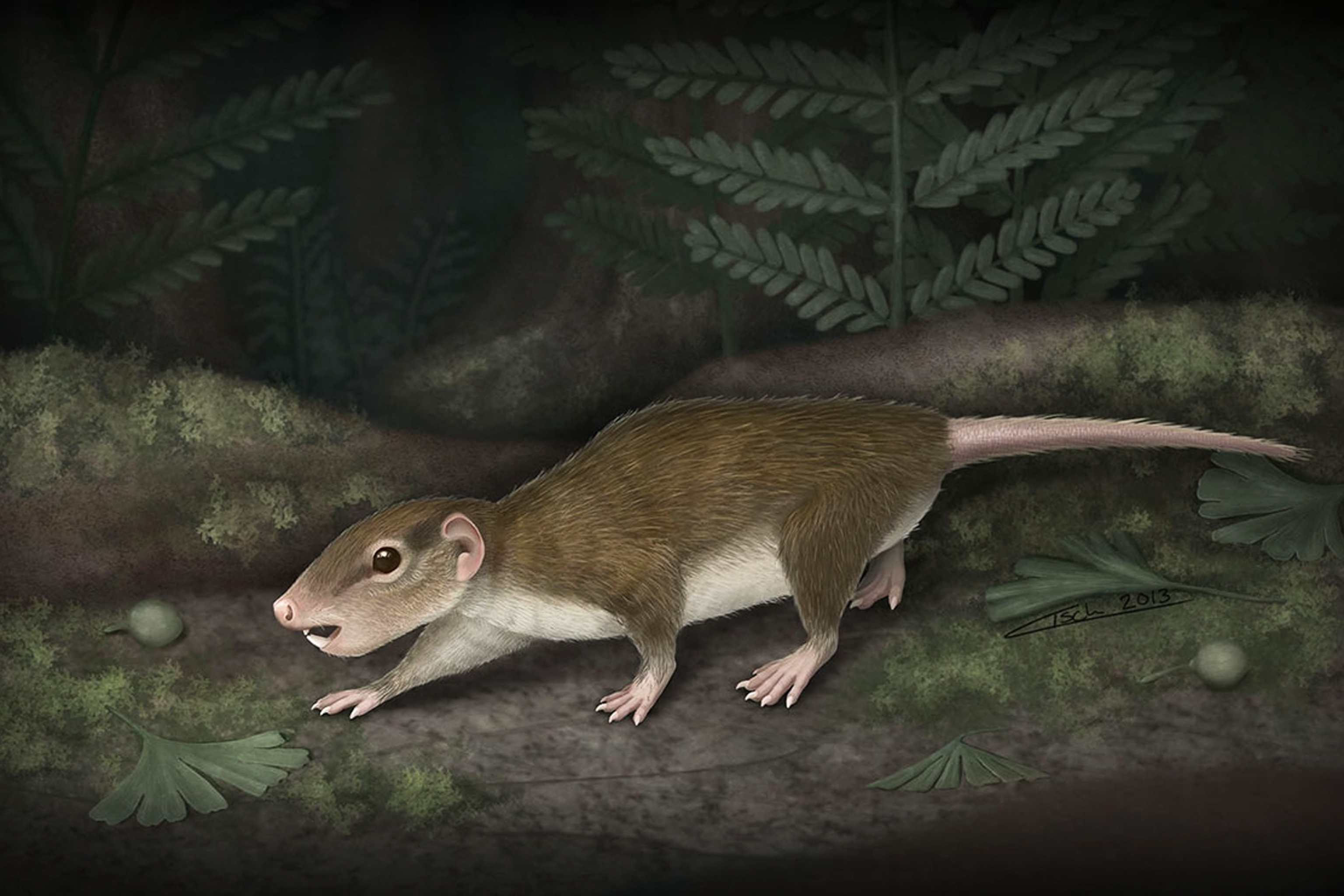
Fossil Reveals Long-Lived Mammal Group's Secret
New Jurassic find in China provides fresh evidence of early mammal evolution.
The discovery of a 160-million-year-old fossil of a rodent-like creature is helping shed light on how one of the most evolutionarily successful mammalian groups to ever live gained dominance.
Dubbed Rugosodon eurasiaticus, the creature bore a superficial resemblance to a small rat or a chipmunk and was an early member of the group of mammals known as multituberculates.
Its nearly complete skeleton was found in the province of Liaoning in northeastern China—the same region that has gained fame for its fossils of feathered dinosaurs such as Anchiornis.
"This multituberculate belongs to the basal-most family, so its one of the first lineages that ever came into existence for the whole multituberculate group. That's why we're so hot about it," said study leader Zhe-Xi Luo, a paleontologist and early-mammal expert at the University of Chicago.
Multituberculates lived from about 165 million years ago to about 35 million years ago. They scurried alongside dinosaurs and even managed to outlive the fateful asteroid strike that ended the giant reptiles' reign.
The creatures not only survived, but thrived, creating niches for themselves on the ground, in the treetops, and even underground.
"Their lineage lasted 130 million years, and that's something," said Luo.
The research is detailed in this week's issue of the journal Science.
What's New?
One key to the multituberculates' success was a wide-ranging diet. They were omnivores, meaning they ate both meat and plants.
Based on a study of its teeth, scientists proved that Rugosodon, in particular, was also an omnivore. Its remains were found near the edge of an ancient lake, where the creature could have dined on plants such as ferns, as well as insects and a clam-like crustacean called Conchostraca, Luo said.
What surprised Luo and his team, however, were Rugosodon's ankles, which appear to have been capable of "hyper-back-rotation." Such highly mobile ankle joints are normally associated with the foot functions of animals that are exclusively tree-dwellers—those that navigate uneven surfaces.
"If your ankle gets twisted 90 degrees, you'd suffer pain," Luo said.
"[Rugosodon] could twist its ankle for the joy of its life."
Why Is It Important?
Scientists had known previously that some younger multituberculates living about 65 million years ago could hyper-rotate their ankles.
"Now, lo and behold, we now find that Rugosodon, which lived 100 million years earlier, has exactly the same joint!" Luo said.
What Does This Mean?
The discovery of hyper-back-rotation ankles in such an early multituberculate supports the idea that this was a key reason they were so successful, Luo said.
"Essentially, from the very beginning of their whole lineage, multituberculates were already well equipped to be capable of such a versatile locomotor adaptation," he added.
All of that versatility couldn't save the group from extinction, however. Multituberculates disappeared about 35 million years ago, their evolutionary niches taken over by another group that shared their omnivorous diet and talent for adaptability: rodents.
It's not entirely clear why multituberculates lost to rodents, but one idea is that they just couldn't reproduce fast enough.
"Rodents were more prolific, perhaps, than multituberculates," Luo said.
Moreover, multituberculates are such an ancient lineage of mammals that they had not evolved the placental reproduction that rodents had.
What's Next?
As exciting as the discovery of Rugosodon was for Luo and his team, he said they are already moving on to study other fossil discoveries.
"There are so many important fossil discoveries, and we are thrilled about it, but we feel like we drink water from a fire hose," Luo said.
"If you take one gulp, the rest just passes you by."
Follow Ker Than on Twitter.